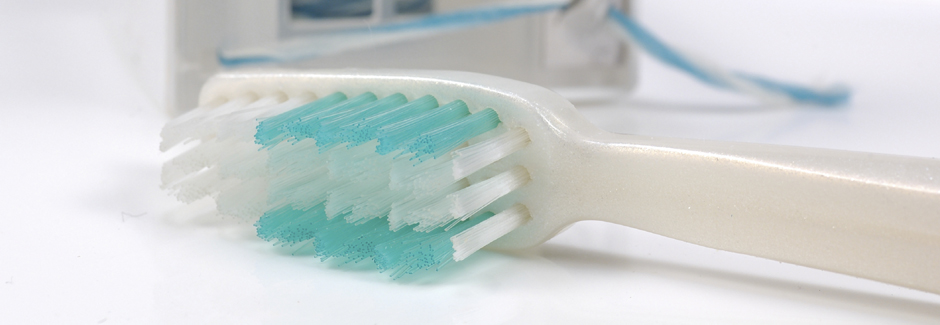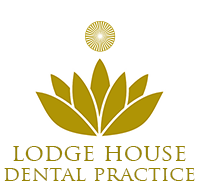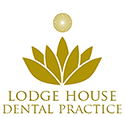
PREVENTATIVE DENTISTRY
At Lodge House Dental Practice, we provide a comprehensive range of preventive dental treatment.
Decay may or may not cause discomfort; even though it doesn’t hurt, the tooth is deteriorating. Using higher magnification and powerful lighting, it is easier to detect decay at an early stage to prevent excessive tooth damage. When cavities are small, they are much easier and less expensive to treat.
Early tooth decay does not tend to show many physical signs. Sometimes the tooth looks healthy, but your dentist will be able to see from an x-ray whether you have any decay under the enamel, any possible infections in the roots, or any bone loss around the tooth.
Early Gum Disease Screening
Screening for gum disease forms an integral part of your routine examination. Gum disease describes swelling, soreness or infection of the tissues supporting the teeth.
Mouth Cancer Screening
Mouth cancer is a malignant growth which can occur in any part of the mouth, including the tongue, lips and throat. Mouth cancers have a higher proportion of deaths per number of cases than breast cancer, cervical cancer or skin melanoma. The mortality rate is just over 50%, despite treatment, with about 1,700 deaths per year in the UK. This is because of late detection. Visit your dentist at once if you notice any abnormal problems or are not sure. Six-monthly dental checkups allow early detection!
Bad Breath
Bad breath is a very common problem and there are many different causes. Persistent bad breath is usually caused by the smelly gases released by the bacteria that coat your teeth and gums. However, strong foods like garlic and onions can add to the problem. Smoking is also one of the main causes of bad breath, along with certain illnesses such as nasal and stomach conditions. Bits of food that get caught between the teeth and on the tongue will rot and can sometimes cause an unpleasant smell. So correct and regular brushing is very important to keep your breath smelling fresh.
The bacteria on our teeth and gums (plaque) also cause gum disease and dental decay. If you see your dentist regularly this will not only help prevent bad breath but will also let the dentist look for and treat these problems.
Mouth Guards and Sports Mouth Guards
A mouthguard is a specially made, rubber-like cover which fits exactly over your teeth and gums, cushioning them and protecting them from damage. It is important to wear a professionally made mouthguard whenever you play sport that involves physical contact or moving objects. This includes: cricket, hockey and football – which can cause broken and damaged teeth; and American football, boxing and rugby – which can all cause broken or dislocated jaws. A custom made mouth guard will help protect against these events.
Broken or chipped teeth can be restored using porcelain veneers and crowns or composite resin
Call us today to book a consultation!
Oral Hygiene
Many of us visit our dentist regularly. However, while most practices have one available, not all of us visit our dental hygienist quite so often. When we do, it is often simply because our dentist recommends it. So let’s take a closer look at the role of the dental hygienist. What do they do? Why is it a good idea to visit them? And what will happen if you don’t?
What is a dental hygienist?
Most modern practices will have a dental hygienist who works with your dentist to ensure that you are looking after your teeth properly. The role of the dental hygienist is to monitor your rate of gum disease and recommend steps that you yourself can take to avoid serious dental work in the future. Therefore, it is very much in your interests to listen to what they have to say.
What sort of recommendations will they make?
If you visit your dental hygienist, they will normally begin with a scale and polish, during which the plaque and tartar are removed from your teeth. The advice from your hygienist will then involve recommendations on how you can avoid plaque and tartar building up in the future. They may recommend a different way to brush your teeth, giving up smoking or making changes to your diet to protect your teeth in the future.
What damage will plaque do?
Plaque is a major cause of tooth decay and gum disease and is often caused by sugary foods and drinks, for example. Therefore, if you can change your diet, this may help to slow down the build-up of plaque and stop you from needing fillings, or even tooth extractions, in the future.
What else can I do to maintain good oral hygiene?
Toothcare is an important industry and there are many different products available. For example, you could try a different type of toothbrush, such as an electric one. You could try a mouthwash or dental flossing. And don’t forget to choose the right kind of toothpaste – do you need one with extra fluoride? Or one for sensitive teeth? Do they all remove plaque as well as each other?
It’s bewildering Where do I start?
Start by talking to your dental hygienist or, if your local practice does not have one, speak to your dentist. They will be able to evaluate the quality of your oral hygiene and highlight areas where you could be looking after your teeth and gums better. They will probably also be able to recommend the right kinds of products for you from the vast array currently on the market. So you can begin to put together an oral hygiene programme that suits you.
Are children too young to visit a hygienist?
In a word, no. Children’s teeth are more vulnerable to plaque than adult teeth and therefore their teeth need to be well looked after. A visit to the dental hygienist will not only help to remove plaque and polish their teeth. You can also talk to your hygienist about preventative techniques, such as extra fluoride treatment or dental sealants. You can read more about those sorts of treatments on this site.
Dental Sealants
The majority of the dental procedures we have written about on this site have been aimed at correcting a problem. For example, you only need a filling if you already have a cavity. Or you only require a bridge or implant if you have already lost a tooth. But what about procedures that are designed to prevent problems rather than just correct them? Are any of those types of procedure successful and worth considering?
On this page, we will answer your questions about dental sealants. How do sealants work? Who should get them? How long do they last? And how effective are they? Hopefully, this page will assist patients considering dental sealants to make up their mind about consulting a dentist.
What are dental sealants exactly?
A dental sealant is a very thin film, made from plastic, which is applied to the surface of the back teeth. This plastic film hardens and then protects the back teeth against plaque, bacteria and ultimately, decay.
Why do people need sealants?
Often people, especially children, have difficulty cleaning their back teeth. This can be because those molars at the back are difficult to reach. Alternatively, it could be because those molars have grooves or nooks where food can gather but the toothbrush can’t quite reach.
On these occasions, your dentist may recommend sealants as a way of protecting the teeth so that they do not decay and cause cavities. It is therefore a preventative measure which may help you to avoid further, more complex dental repair work in the future.
Is it painful?
No. That’s why, if you are dental phobic, sealants can be a good idea. By taking steps to protect your teeth now, you may be able to stop them from deteriorating and therefore avoid some of the more painful dental work.
What happens during the procedure?
As we mentioned above, it is a painless procedure that can be done fairly quickly during just one visit to the dentist. Firstly, the teeth are properly cleaned so that no debris is caught under the sealant. A solution is applied to the teeth to help the sealant adhere and, finally, the sealant itself is put on the teeth. If you look after them, your sealants can protect your teeth for up to a decade.
Are sealants safe for children?
Yes, dental sealants are often recommended for children’s teeth as they can protect them against decay during the years when the teeth are most susceptible. It also hopefully means that parents can avoid expensive dental treatments throughout a large part of the childhood.
How do I look after my sealants?
Looking after your sealants is a straightforward process. You simply need to ensure that you are brushing regularly. You must also ensure that you have regular check-ups with your dentist, so that they can check that your sealants are still protecting your teeth. Sometimes, sealants can chip or wear, but new layers can be applied by your dentist.
Fluoride Treatments
Fluoride treatments are another option that you may wish to explore if you are interested in preventative treatments. Many people who are dental phobic choose to delay going to the dentist because they are very nervous of hearing bad news about their teeth (and the future treatment they may require). Preventative treatments like fluoride or dental sealants can therefore give people who suffer from phobias more confidence. If they can visit their dentist more regularly for check-ups, they can usually ensure that their teeth remain healthier than if their visits were few and far between.
This article answers a few of the most common questions about fluoride treatment. However, it is by no means exhaustive and fluoride is one of the more complex subjects within dental health. If you’d like to know more, talk to your dentist.
What is fluoride?
Fluoride occurs naturally is many foods and often in water. It helps to strengthen tooth enamel and therefore makes your teeth less vulnerable to plaque build-up. In some countries (including the UK) fluoride is added to the water supply to ensure that everyone has healthier teeth. Most toothpaste will also contain fluoride.
What is fluoride treatment?
If your dentist thinks that your teeth are not healthy enough to withstand the attack of plaque and tartar, he or she may recommend fluoride supplements. Flouride supplements can be taken by both children and adults, although they are usually only taken on the specific advice of the dentist. Most of us have all the fluoride we require through our natural diet.
Why are some people more likely to need fluoride?
Many dentists recommend that children take fluoride supplements until they are 16, as this is the time when they are most susceptible to tooth decay. In adults, there are a number of conditions which can require fluoride supplements. Dry mouth conditions and gum disease such as gingivitis increase the chances of tooth decay in adults. Alternatively, your dentist may simply recommend fluoride treatments if you have had significant dental work, such as orthodontic work, which may have increase the risk to the remaining natural teeth.
What does the treatment involve?
The fluoride treatment from your dentist is more concentrated than the fluoride in your toothpaste, for example. However, it is a very straightforward and pain-free dental treatment. The fluoride is usually applied as a gel or solution and only takes a few minutes. It may take another half an hour after the treatment for your tooth enamel to absorb the fluoride, during which time you will probably have to refrain from eating or drinking.
Is fluoride safe?
This is the main reason why fluoride can be such a controversial and complex subject. There is no doubt that fluoride is effective if patients want to maintain healthy teeth and gums. However, there are people who claim that fluoride in our water supply is unnecessary and that it can cause harm. The most recent research has failed to find any significant evidence to show that fluoride in our water supply is harmful.

